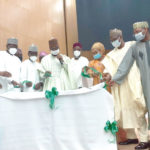CONGRATULATIONS to Nigeria as it joins the rest of the world to mark today, 20th October, as the World Statistics Day. In line with this year’s objective, which is to raise public awareness about statistics and its importance to national socio-economic growth and development, it is worthy of celebration by the government, researchers, academics, and all users of Statistics. Statistics as a field originated from numbers generated for and used mainly by the state for planning and forecast. It, therefore, facilitates the identification of the strengths and challenges of government and allows the trend of socio-economic life and magnitude to be measured. Interpretations of such numerical findings are therefore given to the public in a language that is meaningful and understandable. It is also a useful tool for the government to choose among available alternative policies. It gives an insight into the allocation of resources for policy implementation and evaluation of the impact of policy execution.
National planning is a fundamental process to effective and achievable socio-economic development, while statistical findings and research are unavoidable tools for the design and implementation of a reliable national plan objective and effective cast. Succinct and systematic national planning objective gives a high degree of growth and development. Trusted and verifiable data about physical, social, and economic characteristics and people’s needs is the simplest and most effective instrument to achieve laudable goals. In Nigeria, the central statistical body is the National Bureau of Statistics. It was in existence as a parastatal agency under national planning some years back. It was legally authorized in 2007 when the Statistical Act was passed into law. Among others, the law made the National Bureau of Statistics the apex statistical agency in Nigeria and an autonomous public authority responsible for the presidency. The appointment of the Statistician-General is for a fixed term and non-political so as to maintain the independence of the body.
The National Bureau of Statistics as well as state and local government statistical agencies rely on budgetary allocations from the government. It is assumed in some quarters that the output may be influenced by the government. However, the objective goes beyond narrow views and as it lives beyond every regime.
In most African countries, the value of statistical principles for socio-economic development plans and forecasting are either not encouraged or given low consideration. Unfortunately, no amount of expertise and design to foster development, monitoring, and evaluation of national strategies can give anticipated results without quality statistics. Advocacy without credible statistical facts in defence strategies often leads to security challenges, particularly when consideration is not given to the number of security personnel to the population, types of weapons, technology, geographical space to be covered, and failure to plan ahead. The implication will be the inability of the government to stem the tides of crime. Statistical information is to guide the government on history, cause of security challenges, and answer germane questions. Such as, has any responsibility been neglected? Is it a reaction to new policies development etc.?
Population studies or census are not given adequate consideration. The international standard on census studies needs to be adequately followed. Often census findings are often borne out of suspicion by ethnic and religious sentiment by some Nigerian leaders. Litigation by some states and local government often raise questions about the credibility of the outcome of the population figures. The implication is that it rendered the available population data unreliable for planning or for policy execution. The highlighted neglects and challenges limit the government in its palliative program for the citizens at the peak of the COVID-19 pandemic. The government finds it difficult to plan or implement the palliative programme for its citizens because of the non-existence of reliable population data. The Nigerian elite and the average citizens have not done enough for the growth of statistics, as every measure to collect socio-economic data by data collectors are given the wrong perception. Inappropriate or poor infrastructure development of our local communities, which is an indictment of the various levels of government, may also cause distrust by the citizens for data collection.
Nigeria’s academics and higher institutions need to do more on awareness and professionalism by establishing statistics laboratories to serve the public and researchers that are often having challenges of statistical processes and analysis. The University of Ibadan Laboratory for Interdisciplinary Statistical Analyses has set the pace. Creating such a structural model would complement the Nigerian statistical system, where data would be available for researchers and students. Universities need an established one-call and functional data bank to secure information about their system for students and researchers. Theoretical training is important, but the application matters a lot. A national statistics day needs to be pronounced for public awareness and its usefulness.
- Aderemi, a lecturer at the Federal School of Statistics, Ajibode, Ibadan, writes in via folorunsomoruf@fssibadan.edu.ng
YOU SHOULD NOT MISS THESE HEADLINES FROM NIGERIAN TRIBUNE
ICYMI: Presidential Panel On Police Reforms Agrees To Meet All Demands By #EndSARS Protesters
The Inspector-General of Police (IGP), Mohammed Adamu, has convened a meeting with stakeholders and has agreed to meet all demands raised by the #EndSARS protesters, which include halting use of force against protesters and unconditional release of arrested citizens.
ICYMI: Lagos To Compensate Victims Of #EndSARS Protest With N200m ― Sanwo-Olu
Lagos State governor, Mr Babajide Sanwo-Olu, has said the state government has earmarked N200million as compensation for families of victims of #EndSars protest.
ICYMI: I Was A Victim Of SARS Brutality Twice, Oyo Deputy Gov Tells Protesters
Oyo State deputy governor, Mr Rauf Olaniyan revealed that members of the Nigerian Police Special Anti-Robbery Squad (SARS) have attacked him twice.
ICYMI: #EndSARS: Protesters Block Oyo Secretariat Main Gates (SEE VIDEO)
#ENDSARS protesters, on Tuesday, blocked the main gates leading to Oyo State government secretariat, demanding the total end to Special Anti Robbery Squad (SARS), saying no reformation of the disbanded police units should be carried in the Nigeria Police Force.
ICYMI: Buhari Nominates Lauretta Onochie, Three Others As INEC Commissioners
President Muhammadu Buhari has nominated his Special Assistant on Social Media, Lauretta Onochie and three others as National Commissioners of the Independent National Electoral Commission, (INEC).






